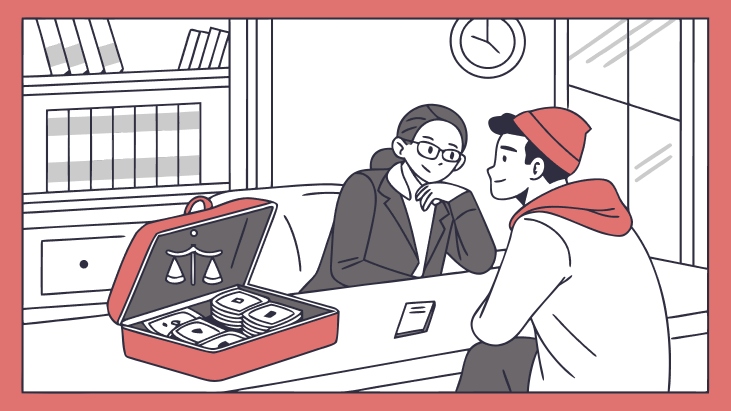With the Toronto condo market in turmoil, many pre-construction buyers are looking for ways to reduce their losses and cover their mortgage payments while they seek options to sell their condos. One way that buyers have traditionally used is to rent out their unit as soon as they closed, giving them the cashflow needed to afford the carrying cost and expenses. However, this isn't the case for all new condos. There are some nuances that come renting your newly constructed unit.
One critical aspect is the interim occupancy period, a phase between when you take possession of your unit and when you officially become its owner. During this time, you might wonder: Can I rent out my unit?
The answer isn't straightforward and depends on several factors.
Understanding Interim Occupancy
In Ontario, when you buy a pre-construction condo, there's a period called interim occupancy. This phase occurs after your unit is ready for occupancy but before the entire building is registered as a condominium corporation. During this time, you can move into your unit and are required to pay an occupancy fee, which typically includes estimated maintenance fees, property taxes, and interest on the unpaid balance of the purchase price.
However, you don't officially own the unit yet. Ownership is only transferred upon the building's registration, which can take several months or even longer. Until then, the developer retains ownership, and your rights regarding the unit are limited.
Can I Lease my Unit During Interim Occupancy?
Given that you don't own the unit during interim occupancy, your ability to lease it out is subject to the developer's rules and the terms outlined in your Agreement of Purchase and Sale (APS).
Some developers include clauses in the APS that prohibit leasing during interim occupancy. Violating these clauses can lead to serious consequences, including the developer deeming it a breach of contract, which might result in the termination of your agreement and forfeiture of your deposit.
Even if leasing isn't explicitly prohibited, some developers require you to obtain their consent before renting out the unit. Failing to do so can also be considered a breach of contract.
Risks of Leasing Without Consent
Leasing your unit without the developer's consent during interim occupancy can have several repercussions:
- Legal Action: The developer may initiate legal proceedings against you for breaching the APS.
- Termination of Agreement: The developer might have the right to terminate your purchase agreement, potentially leading to the loss of your deposit and any appreciation in the property's value.
- Financial Loss: If the market has appreciated, losing the unit could mean missing out on significant gains. Conversely, if the market has declined, you might be relieved from a potential loss, but this is a risky gamble.
Best Practices for Prospective Buyers
To safeguard your interests:
- Review the APS Carefully: Before signing, ensure you understand all clauses related to leasing during interim occupancy. Having your real estate lawyer review the agreement prior to signing is crucial.
- Consult a Real Estate Lawyer: Legal professionals can help interpret the APS and advise on potential risks.
- Communicate with the Developer: If you plan to lease your unit, discuss it with the developer to understand their policies and obtain necessary consents.
Frequently Asked Questions (FAQ)
Q: Can I lease my condo unit during interim occupancy?
A: It depends on the terms of your Agreement of Purchase and Sale. Some developers prohibit leasing during this period, while others may allow it with prior consent.
Q: What happens if I lease my unit without the developer's consent?
A: Leasing without consent can be considered a breach of contract, potentially leading to legal action, termination of your purchase agreement, and financial loss.
Q: When can I freely lease my condo unit?
A: Once the building is registered, and you officially own the unit, you generally have the right to lease it, subject to the condominium corporation's rules and bylaws.
Q: Are there any restrictions on leasing after I own the unit?
A: Yes, the condominium corporation may have rules regarding leasing, such as minimum lease terms or prohibitions on short-term rentals. It's essential to review these rules before leasing your unit.
Unlock Your Seamless Closing Experience
Your Journey to a Worry-Free Closing Starts Here!



